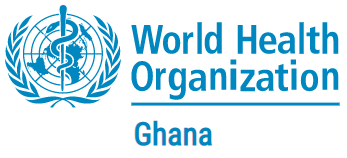
Addressing gender barriers and inequities in access and use of health services has been identified as a key to accelerating progress towards the Sustainable Development Goals (SDGs), particularly universal health coverage as enshrined in SDG three.
In Ghana, the Ministry of Health recently inaugurated the Health Sector Gender Focal Technical Group with representatives from over 20 agencies. The mandate of the working group is to support the review process and update of the Health Sector Gender Policy and to ensure gender mainstreaming activities in the various agencies.
Currently, the World Health Organization (WHO) with funding from the Government of Canada, through Global Affairs Canada, is supporting the capacity enhancement of the Health Sector Gender Focal Technical Group to enable them to effectively integrate gender, equity&rights into health policies and programmes.
Speaking at the opening of the workshop on behalf of the WHO Representative to Ghana, Prof Francis Kasolo, the Lead of the Healthier Population Cluster at WHO Ghana, Akosua Kwakye underscored the critical role of applying a gender lens at all steps of health program planning and implementation to accelerate the achievement of Universal Health Coverage (UHC).
“We know planning processes are not gender neutral, and so, if we are able to analyze and understand the gender and equity-related issues in our health programming, it will take us a step closer to addressing the gaps in equitable access to health services at all levels of care,” noted Akosua Kwakye.
The capacity building reflects WHO and Ghana’s shared commitment to building a health system that is responsive to the needs of all, while also focusing on reaching the most vulnerable and marginalized in our society.
“We believe that health system capacity must be strengthened to ensure effective gender mainstreaming and integration. Therefore, we are proud to be collaborating with WHO to ensure that this momentum is sustained in all our agencies,” says Mavis Adobea Botchway, a Planning and Liaison of the Gender desk at the Ministry of Health.
For the gender focal persons, the capacity enhancement has empowered them to begin to lead the change and ensure that the mandate of their agencies is discharged in a manner that is consistent with ensuring the right to health, for all.
“This has been a very insightful training that will have implications for our gender mainstreaming efforts,” says Michael Appiah, Human Resource Officer, at the Food and Drugs Authority (FDA). “I particularly found the module on gender analysis and the exercises useful – as it will help us to notice who might be missed out, and the barriers that might make our interventions ineffective.
The training, which brought together 28 gender focal persons from all agencies under the Ministry of Health saw participants taken through key concepts on gender, equity, and rights-based approaches; evidence on the interactions between sex, gender, and health; gender analysis including tools and resources; health inequality monitoring and responding to sexual misconduct in the workplace and programme implementation.
Distributed by APO Group on behalf of World Health Organization (WHO), Ghana.
